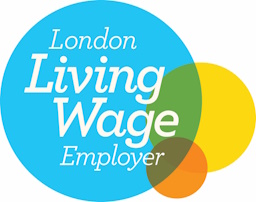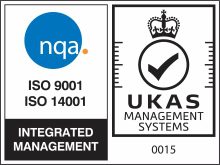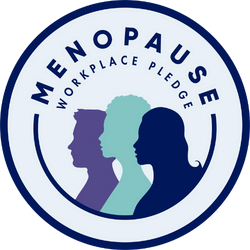Sara’s Blog: Peer Network – and tier two measures for Staffordshire
In partnership with Stoke-on-Trent and Staffordshire Local Enterprise Partnership (LEP), we are launching a brand-new programme which will connect top business leaders from the county to help our economy recover and to drive it forwards.
The Peer Network, as it is known, will address issues such as the current business challenges brought about by the Covid19 pandemic, the end of the Transition period, move towards net zero carbon economy as well as ongoing issues ranging from growth strategies, HR, change management, innovation, succession and planning – all with the aim of helping your business, improving the region’s business landscape and driving prosperity.
Everyone completing the programme will be invited to an exclusive talk on ‘Teamship’ from England’s Rugby World Cup winning coach, Sir Clive Woodward in March 2021which will dovetail with the 2021 Staffordshire Chambers Business Festival.
The Peer Network provides a great opportunity for business leaders to learn from each other and get great support and hints and tips on dealing with the challenges facing us all – and especially those who have drive and ambition to grow their companies.
Participants will be put into small groups of about 15 people and will meet to discuss strategic and operational challenges and work together to find practical solutions.
The programme is fully funded with a minimum commitment of 21.5 hours from each participant delivered over five network meetings, each lasting three hours, every two weeks from early November and will be facilitated by an experienced business consultant. And it’s all confidential. Anyone interested in joining the scheme can register at: www.staffordhirechambers.co.uk/peer-network or for more information call Matt Hustwit on 01782 202222 or email Matt.Hustwit@staffordshirechambers.co.uk
When moving on is not a good thing……. as you will know Staffordshire is set to join Stoke-on-Trent in Tier Two (high alert). Whilst we fully support any effort to slow the spread of Covid19, this is yet another blow to business, in particular the hospitality sector.
The Chambers is here to support businesses in any way we can, bringing you the latest developments and continuing to lobby government through the British Chambers of Commerce (BCC) to provide clear guidance and a plan for further support for business as the pandemic continues.
If you have any concerns or questions about the new measures and what it means for business, please don’t hesitate to get in touch by emailing: info@staffordshirechambers.co.uk
If you want to talk to us about any business issues, you can call our switchboard on 01782 202222 or call the Stoke and Staffs Growth Hub Helpline on 0300 111 8002 or email info@staffordshirechambers.co.uk.
- Published in News
Sara’s Blog: Black History Month and Gordon Brown webinar
October is Black History month in the UK, an event that has been celebrated nationwide for more than 30 years.
Black History Month was originally founded to recognises the contributions that people of African and Caribbean backgrounds have made to the UK but has expanded to include the history of all black people.
There are countless examples of the contribution that black people have made to Staffordshire but as my space here is limited, I am highlighting just one, Doug Brown, the son of a Ghanaian father and an English mother.
Doug trained as a physiotherapist in the Second World War to help in the recovery of injured soldiers and continued this work in the newly formed NHS.
In 1960 Doug became the physio for Stoke City where his elder brother, Roy, had played as a young man. Doug was fanatical about inclusiveness in sport and in 1967 set up the first Lads-and-dads matches on local school football pitches, which had previously been closed at weekends.
Lads-and dads continues to this day and has given thousands of aspiring boys and girls given a safe and regulated environment to play football, make friends and stay healthy.
For his work with Lads and dads, Doug was nominated by black footballers Garth Crooks and Robbie Earle, both originally from Stoke, for the BBC People’s Awards. Doug also helped to set up Match Mates to help combat hooliganism for which he received an award from Princess Diana.
Doug became an independent councillor, later joining the Labour Party and went on two serve twice as Lord Mayor of Stoke-on-Trent, in 1984 and 1997.
He received an honorary degree from Keele University in recognition of his lifetime’s service to young people, was a Justice of the Peace and president of the North Staffordshire Chinese Community.
Doug Brown’s life was dedicated to making other people’s lives better and his legacy lives on. I am sure he still serves as an inspiration to black men and women who continue to enrich our community in so many ways in business, education, healthcare, politics, charity, entertainment and sport.
I also feel it is appropriate to mention arguably Stoke-on-Trent’s most famous son, Josiah Wedgwood, who was an active member of the Britain’s Society for the Abolition of Slavery in the eighteenth century. He created the anti-slave medallion featuring an enslaved man alongside the words “Am I not a man and a brother?” Wedgwood sent a medallion to Benjamin Franklin, then president of the Pennsylvania Society for the Abolition of Slavery who wrote back: “ I am persuaded [the medallion] may have an effect equal to that of the best written pamphlet in procuring favour to those oppressed people.”
The British Chambers of Commerce (BCC) are hosting a very special webinar on Tuesday 27th October when former Prime Minister and Chancellor of the Exchequer, Gordon Brown will be discussing a global approach to rebuilding a stronger economy with BCC Director General, Dr Adam Marshall.
You can watch the discussion live as they talk about the Restart, Rebuild and Renew campaign and what the UK and global market need to do to rebuild the economy. You can book your place at this unmissable live webinar here: https://bit.ly/2IGXAGv
If you want to talk to us about any business issues, you can call our switchboard on 01782 202222 or call the Stoke and Staffs Growth Hub Helpline on 0300 111 8002.
- Published in News
Finest Blog: Professional Services will be affected when Transition Period ends
“Staffordshire is home to many companies operating in the Business and Professional Services Sector. It is a common miscomprehension that this sector does not import or export but the truth of the matter is that these so called ‘invisible exports’ account for as much, if not more, than the sum of the UK’s tangible goods being shipped overseas. However according to a recently published House of Lords’ report the UK’s accountants, lawyers, recruiters, architects and advertisers..etc are under risk of losing contracts and jobs when the Transition Period ends on 31 December.
It’s becoming clear that Professional Services are being undervalued when it comes to Brexit. The general feeling of uncertainty that 2020 has given us, married with a growing fear of job losses across the board, we must be doing all we can to ensure professionals can continue to trade.
Staffordshire Chambers of Commerce is therefore urging the Government to bear this in mind whilst conducting the Free Trade Negotiations with the EU so that this sector is not forgotten. It is of paramount importance that our professional business community can continue to work with and service overseas customers unhindered to ensure that our economy does not suffer further setbacks.”
- Published in News
Sara’s Blog: Reaction to lockdown measures Kickstart Scheme and Awards entries
The Chambers fully understand the measures implemented to tackle the spread of Coronavirus and welcome the new tiered approach adopted by Government, however we do urge the government to consider differences across industrial sectors.
Many companies operate production lines which require days, in some cases weeks, to fully shut down with a similar timeframe to re-start. The ceramic sector is a classic example with high temperature kilns which cannot simply be switched off without planning. This problem is replicated through many businesses using complex automated production processes.
Sectors such as automotive to food and drink will be affected in a similar manner. We are therefore calling on the Government via the British Chambers of Commerce (BCC) to ensure that communications are swift, accurate and comprehensive so that businesses can act accordingly, thus avoiding the confusion which ensued during the initial stages of the first national lockdown.
From the unemployment figures that are starting to come through, it is clear that the under 24s are being hardest hit. These young people are the future for us all and we need to support and help them into work, so they don’t feel like a generation which struggles to see a positive economic future.
We are currently assisting businesses in the county to access funding to create hundreds of jobs for 16 to 24-year-olds through the government backed Kickstart Scheme which aims to have its first placements in work by November. Any organisation, especially if applying for less than 30 Kickstart placements, needs to apply via a ‘Representative’ organisation such as the Chambers.
Businesses will be paid £1,500 towards the costs of taking on a 16- 24-year-old, on Universal Credit and deemed to be at risk of long-term unemployment. The government will pay 25 hours at National Minimum Wage level for 6 months to the employer plus associated employer National Insurance contributions and employer minimum automatic enrolment contributions. The £1,500 per job placement is available for setup costs, employability support and training and must be spent on supporting the young person with training to help them stand a better chance of further employment in the future.
Local Job Centres will receive job descriptions and work coaches will then encourage young people, who they feel would be best suited to those roles, to apply directly to business.
Employers can offer more than 25 hours and pay the young person more than National Minimum Wage at their own cost. Support will also be provided for employers looking to offer the young person full-time work or even an apprenticeship at the end of the six-month placement period. And of course there is wrap round support from the Growth Hub, the Skills Hub, the Chambers’ mentoring programme, our HR specialist advisor and many other services to help make this a good experience for the young person and the business generously offering the placement.
So far we have had over 200 businesses offering placements in Staffordshire alone.
Any employer interested in Kickstart should contact Tom Nadin: tom.nadin@staffordshirecghambers.co.uk 01782 202222
Finally, a big thank you to all those who sent in entries for the 2020 Staffordshire Chambers Business Awards. Despite the current situation we still had just under 200 entries. We now have the difficult
but pleasurable task of deciding on the shortlisted entries for our online gala presentation evening on 19th November. More on this special event nearer the time and all the information on the event is on our website.
If you want to talk to us about any business issues, you can call our switchboard on 01782 202222 or call the Stoke and Staffs Growth Hub Helpline on 0300 111 8002.
- Published in News
Sara’s blog: BCC QES findings and small business revenue grants
The findings of the British Chambers of Commerce (BCC) quarterly economic survey for quarter three 2020, published late last week, made sobering reading with nearly half of firms reporting a decrease in sales as they endured a sustained squeeze on cash.
The survey of over 6000 firms from across the UK, including a healthy input from Staffordshire businesses, showed conditions for quarter three have remained weak despite much of the economy reopening.
Not surprisingly, business to consumer firms, including hospitality, fared worst in the wake of redundancy threats and a fall in the availability of disposable income.
Whilst Q3 has seen an improvement compared to the unprecedented percentage of firms reporting decreases in domestic and export sales in Q2, most firms continue to report decreases or no change in sales in Q3.
Cash flow, a key indicator of business health, continued to deteriorate for almost half of firms. In Q3, 21 percent of firms reported an improvement in cash flow, 34 percent reported no change and 45 percent reported a deterioration. Alarm bells rang in the micro firms’ sector with 51 percent reporting a deterioration.
The government’s Winter Economy Plan may provide a short-term shot in the arm, but the BCC is pushing ministers to be on standby with further measures, clearly articulated, to assist those businesses most at risk.
You can read the full QES report here: https://bit.ly/34ueuiM
Stoke on Trent and Staffordshire Growth Hub are offering grants of up to £1000 to help growth in SMEs.
Typical expenditure would include product and design development, specialist consultancy or consultancy costs to build or improve a website.
The £1000 grants must be matched by £667 of a businesses own funding and you need to have been trading for 12 months with 70 percent of your sales derived from business to busines (B2B) activity.
If you are interested in applying contact Angela Halls: angela.halls@stoke.gov.uk
If you want to talk to us about any business issues, you can call our switchboard on 01782 202222 or call the Stoke and Staffs Growth Hub Helpline on 0300 111 8002.
- Published in News
Sara’s blog: Coronavirus second wave and an interactive finance webinar
It is now undisputed fact that the second wave of the coronavirus pandemic is here with infections, hospital cases and deaths all rising steadily.
Thankfully, the doomsday scenario of cases doubling every week, put forward last week by Professor Chris Whitty and Sir Patrick Valance, is not materialising yet but we know how quickly the situation can change. We are just at the start of the autumn and winter period when respiratory viruses circulate more, and the situation could easily unravel.
The UK, like other countries, is in a much stronger position than we were when we walked blind into the first wave. Better treatments are in place, social distancing has become routine and – despite the problems – there is much more testing available. The odds are certainly stacked in our favour more than they were six months ago.
It is in all our hands now to make sure we do not need to move to full lockdown and inflict more damage on our already fragile economy. Allowing employees the choice to work at home where possible, adhering to social distancing and sticking to a meticulous hygiene regime are easy steps for all businesses to enact to prevent a second national lockdown.
Finance concerns continue to be the number one issue for most firms. With this in mind, we are holding a webinar on Thursday 8 October with three Chamber members who are all experts in their field. The presenters are Rachel Buxton from Thompson Wright Accountants, Jed Eatough from LSGK Accountants and Matt Fludgate from Gatewood Commercial Finance.
Rachel, Jed, and Matt are all members of the Staffordshire Moorlands Chamber local area board and are all committed to sharing best practice and advice to benefit the local economy.
The webinar is a chance for a discussion around finance, funding, accountancy, and tax issues and gives you the opportunity to ask our experts questions online or privately.
Book your place online: https://bit.ly/2GjRScw
If you want to talk to us about any business issues, you can call our switchboard on 01782 202222 or call the Stoke and Staffs Growth Hub Helpline on 0300 111 8002.
- Published in News
Frozen fees to help members
The board of Staffordshire Chambers of Commerce has given the green light to a freezing of its subscription fees.
Chambers CEO Sara Williams said: “The next few years are going to be incredibly challenging as business absorbs the full effect of the coronavirus pandemic. The board were unanimous in the decision to cap a membership fee increase until 2022 as a small gesture to help mitigate the financial pressure that many businesses face.
“As a business support organisation, we have never been busier than we were during lockdown, supporting businesses from sole traders up to the largest local employers with the challenges that the pandemic presented daily.
“Our services include business mentoring, legal and HR advice, funding and finance and international trade and we back this with a huge programme of webinars, online forums and networking groups.
“We have an amazing range of knowledge and experience through our members, volunteer mentors and staff and this has been our strength in dealing with the pandemic and its effects to date.
“We are all in this together and our aim is to make sure we all get through this together.”
- Published in News
Sara’s blog: Government’s Winter Economic Plan
The government has acted swiftly with a raft of measures to help business, following the PMs announcement on tightening of restrictions to curb the spread of Covid19, at a pivotal time for the UK economy.
Chancellor Rishi Sunak was quick to unveil his Winter Economic Plan, including measures to support businesses and the economy as the pandemic continues.
Chambers of Commerce have consistently called for a new generation of support to protect livelihoods and ease cash pressures faced by firms as the Job Retention Scheme winds down and we head into a challenging and uncertain winter.
The Chancellor has taken steps that will help preserve jobs. The new Jobs Support Scheme will help many companies hold on to valued, skilled employees.
The Chancellor has also listened to our consistent calls for an extension of business lending schemes, more flexible repayment terms for loans, and tax forbearance measures. With many firms reporting a shortage of cash reserves, this will lessen the immediate pressure and provide reassurance for many.
A summary of the main points of the Winter Economic Plan:
- A new Jobs Support Scheme will be launched for employees working at least a third of their normal hours, who are being paid for that as normal. The government and employers will jointly increase their wages to cover two-thirds of their lost pay and the employee will keep their job
- All small and medium-sized businesses are eligible, but larger businesses must show their turnover has fallen during the crisis. Employers can use it even if they have not previous used the furlough scheme it replaces
- It will run for six months from November
- The existing grant for self-employed people is being extended on similar terms to the Jobs Support Scheme
- A “pay as you grow” scheme was announced for businesses, allowing them to extend their bounce back loans from six to 10 years, reducing their payments
- Businesses can also move to interest-only payments or suspend repayments for six months if they are “in real trouble”. Credit ratings will be unaffected
- The government guarantee on Coronavirus Business Interruption Loans will be extended to 10 years and a new successor loan guarantee programme will be announced in January
- The temporary reduction of VAT from 20% to 5% for some sectors will remain in place until 31 March 2021
The British Chambers of Commerce (BCC) will continue to lobby the government to take additional action to support parts of the economy facing unprecedented challenges over the months ahead.
If you have any immediate concerns or issues you would like us to raise via BCC, please let us no by email to info@staffordshirechambers.co.uk
Finally, I just wanted to let you know that we are keeping our Members’ Lounge at Commerce House open for business. We have all the necessary hygiene and distancing measures in place. So, if you need somewhere safe to work or meet, we would be delighted to see you. You can view the facilities here: https://bit.ly/2NL3Ooa
If you want to talk to us about any business issues, you can call our switchboard on 01782 202222 or call the Stoke and Staffs Growth Hub Helpline on 0300 111 8002.
- Published in News
Brexit: 26 unanswered questions for business with fewer than 100 days to go
The British Chambers of Commerce has published a critical update of its Brexit guidance dashboard containing 26 key questions that remain unanswered with just 98 days to go until the end of the Brexit transition period.
The leading business group published the document alongside new research which suggests business preparation for the coming changes is low due to the unprecedented challenges facing them.
- 26 unanswered questions reflect fundamental aspects of business operations, including UK/EU customs checks and rules of origin
- Just 38% of firms have done a Brexit risk assessment in 2020, compared to 57% in 2019
- BCC seeks clarity for businesses and an immediate resumption immediate resumption of weekly business preparedness summits with senior ministers
Unanswered questions
The BCC’s Brexit guidance dashboard compiles 35 questions most frequently raised by businesses, many of which apply in a deal or no deal scenario. The BCC gives just 9 a green status, indicating there is sufficient information available to plan. 19 are amber, indicating some information is available, and seven are red, indicating there is inadequate actionable information.
Many of the unanswered questions reflect fundamental aspects of how companies operate. Among other things:
- firms do not know what rules of origin will apply after the transition period, preventing them and their customers from planning and potentially creating unprecedented new administration and costs;
- there is no clarity on how food and drink due to be sold in the EU and Northern Ireland is to be labelled;
- very limited guidance on the movement of goods from Great Britain to Northern Ireland; and
- no information on the UK Shared Prosperity Fund, key to ‘levelling up’ the regions and nations – despite years of calls for clarity.
Low levels of business preparedness
The lack of information for firms is compounded by new BCC research released today, which found that just 38% of firms had completed a Brexit risk assessment this year, compared to 57% in 2019 and 35% in 2018.
The research also found that more than half (51%) of firms surveyed had not taken any of the eight steps recommended by the government to prepare for changes in the movement of goods between the UK and the EU. This includes fundamentals of operation for trading businesses such as checking on the need for customs declarations and assessing the possible impact of changes on existing customers and suppliers.
The lack of information with which to plan and potential deadline fatigue presents further challenges to firms up and down the UK that have faced reduced demand, ongoing government restrictions and sustained cashflow challenges due to the Coronavirus crisis.
Demanding action
The leading business group – which represents 75,000 firms of all sizes and sectors across the UK employing nearly six million people, and works with over 30,000 companies that trade internationally each year – has written to Cabinet Office Minister Michael Gove seeking action for businesses and urgent discussions to help firms prepare.
BCC Director General Adam Marshall said:
“With just 98 days to go, business communities face the triple threat of a resurgent Coronavirus, receding government support schemes, and a disorderly end to the transition period.
“Significant unanswered questions remain for businesses, and despite recent public information campaigns, base levels of preparedness are low. Many firms say they’ve heard talk of deadlines and cliff edges before, and others are still grappling with fundamental challenges as a result of the pandemic and have little cash or information with which to plan.
“While we recognise that some of the questions facing businesses are subject to ongoing negotiations between the government and the EU, other matters are within the UK’s own hands. The government must ramp up engagement with business urgently – to the levels seen prior to previous ‘no deal’ deadlines – to ensure that the real-world issues facing firms get tackled immediately.
“The ‘Check, Change, Go’ campaign gives the impression that Brexit-related changes are like getting an MOT – whereas the reality is that for many businesses, they’re more akin to planning a moon landing. Businesses need honest communication about the complexity of the changes they face – and stronger encouragement to act.”
- Published in News
New measures to support businesses have been announced
The “winter economy plan” includes:
Job Support Scheme
- Businesses will have the option of keeping employees in a job on shorter hours, rather than making them redundant.
- Workers must work a third of their usual hours, paid by their employer as normal.
- For the time they are not working, the government will pay a third of their usual pay, and the employer will pay a third of their usual pay.
- The scheme will be targeted at businesses that need it most – all small and medium-sized firms – but only for big companies if turnover has fallen by a third.
- The scheme will run for six months starting in November.
- Firms can claim both the jobs support scheme and the jobs retention bonus.
- A grant for self-employed workers will be extended on similar terms.
VAT Deferral
- Businesses who deferred their VAT will no longer have to pay a lump sum at the end of March next year. They will have the option of splitting it into smaller, interest free payments over the course of 11 months.
- Any of the millions of self-assessed income taxpayers who need extra help can also now extend their outstanding tax bill over 12 months from January.
- The Government has also extended the 15 percent VAT cut for the tourism and hospitality sectors to the end of March next year
Bounce Back Loans
- The application deadline for all coronavirus loan schemes – including the future fund – has been extended to 30 November.
- Struggling businesses can choose for interest only or up to six months suspended payments with no credit rating impact.
Pay as you Grow
- More than one million businesses that have borrowed under the Bounce Back Loan Scheme will be offered the choice of more time and greater flexibility for their repayments.
- Lenders have been enabled to offer CBILS borrowers more time to make their repayments where needed.
Self Employment Income Support Scheme
- The Self-Employment Income Support Scheme extension will support viable traders who are facing reduced demand over the winter months, covering 20 percent of average monthly trading profits via a government grant (extended to 30 April, 2021)
- Published in News









